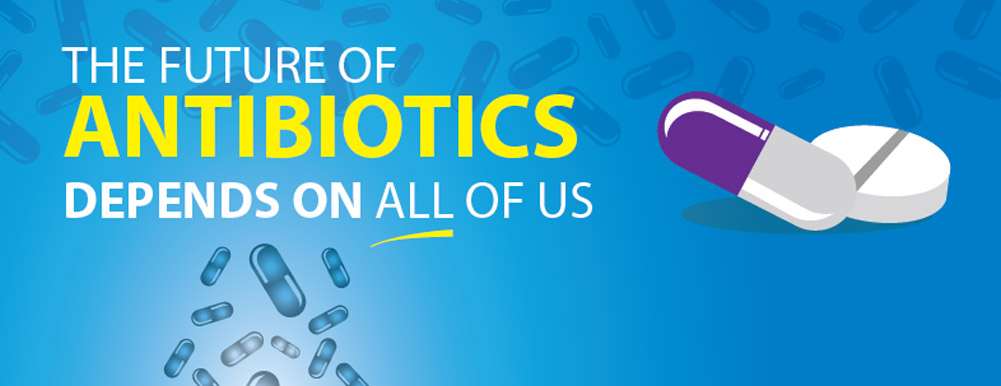
11 November 2019 ‒ World Antibiotic Awareness Week is a global campaign – celebrated this year from 18 to 24 November – to raise awareness of antibiotic resistance, and encourage best practices among the general public, health care workers and policy-makers to avoid the further emergence and spread of antimicrobial resistance.
Antimicrobial resistance is a global crisis that threatens a century of progress in health, poses a formidable challenge to achieving universal health coverage and threatens to undermine progress to achieve the Sustainable Development Goals, the targets of which include promoting good health and well-being.
Alarming levels of resistance have been reported in countries at all levels of income, with the result that common diseases caused by either bacteria, viruses or fungi are becoming untreatable, and lifesaving medical procedures, such as caesarean section, hip replacements and others, are becoming riskier to perform. A growing list of infectious diseases, including pneumonia, tuberculosis, gonorrhea, and foodborne diseases, are also becoming harder, and sometimes impossible, to treat.
Antimicrobial resistance causes an estimated 700 000 deaths globally, each year. By 2050, if left unaddressed, that number is projected to rise to 10 million, while the cumulative costs to both patients and health systems across the globe are expected to reach US$ 100 trillion.
Although drug resistance occurs naturally with the use of antimicrobials, many interrelated factors accelerate the development and spread of antimicrobial resistance. They include: misuse and overuse of existing antimicrobials by humans and the animal and agricultural sectors; inadequate access to clean water; poor sanitation and hygiene in health care facilities, farms, schools, households and community settings; poor infection prevention and control measures in health facilities and on farms; and lack of equitable access to affordable and quality-assured antimicrobials, vaccines and diagnostics. Accordingly, the burden of infectious diseases in animals and humans is increasing which contributes to the emergence and spread of drug-resistant pathogens.
There is no time to waste. Within a generation and without urgent action, the impact of antimicrobial resistance will be disastrous. Because the drivers of increasing levels of resistance lie in humans, the animal sector, agriculture, food, and the environment, a sustained “One Health” approach and response is essential to engage and unite all stakeholders around a shared vision and common goals.
Combating antimicrobial resistance is a shared responsibility among policy-makers, health care providers (clinicians and pharmacists), patients, veterinarians, and farmers. Solid action is needed at all levels to preserve the effectiveness of antibiotics and prevent the continued spread of resistance.
National policy-makers should sustain effective national responses to address the problem through increased political commitment and coordinated multisectoral efforts within the “One Health” approach. National governments should play a central role in developing and implementing national policies to address antimicrobial resistance. Countries should phase out the use of antimicrobials for animal growth promotion, consistent with guidance from the Food and Agriculture Organization of the United Nations, the World Organisation for Animal Health and WHO. Strengthening health systems is a national priority in order to enhance infection prevention and control programmes in health care delivery settings to ensure patients’ safety and reduce the spread of antimicrobial resistance.
We urge all health care workers to prescribe antibiotics appropriately and according to international and national guidelines, regularly wash hands, and get all required vaccinations. Pharmacists need to educate patients about the importance of complying with prescribed treatment regimes.
The public and community members also have a crucial role to play to help slow the tide of increasing levels of resistance. Individuals should seek medical advice for antibiotic treatment, avoid self-medication, never share or use leftover antibiotics and avoid infection through vaccination.
Farm owners and workers in the animal health sector and agriculture should stop using antibiotics to prevent diseases or to promote the growth of healthy animals and plants. They are also encouraged to vaccinate animals to reduce the need for antibiotics.
We seek the support of all national and international stakeholders to act immediately to curb antimicrobial resistance, help to save millions of lives, maintain economic and other development goals, and secure the future from drug-resistant infections.



